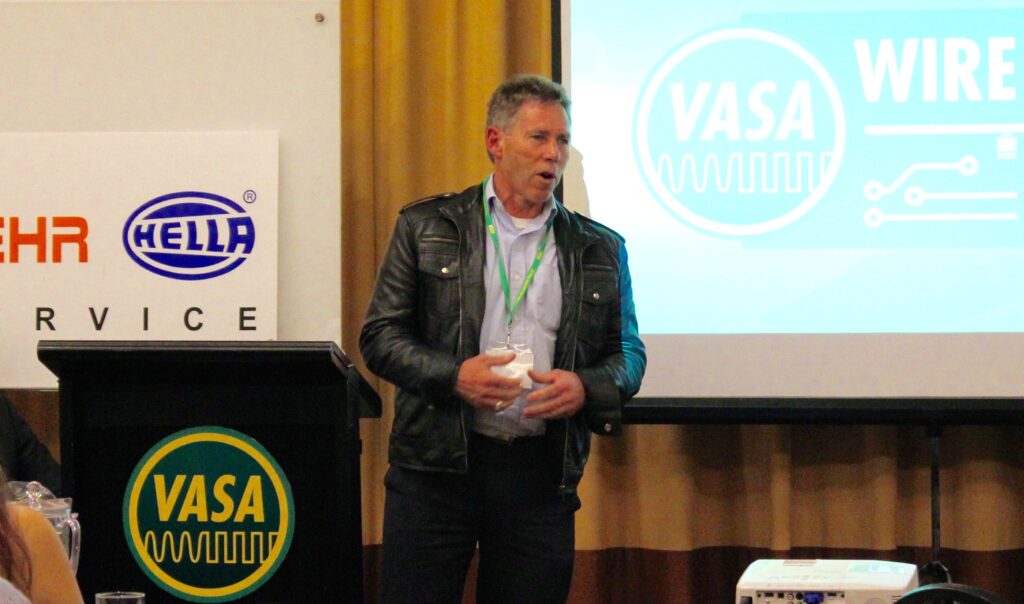VET reform gathers momentum as contestable model kicks in
- PostedPublished 18 September 2015
On August 24, 2015, the deadline elapsed for expressions of interest to form the Skills Service Organisations (SSO) that will replace Industry Skills Councils (ISC) such as Auto Skills Australia (ASA) under the Abbott Government’s vocational education and training (VET) reforms.

Regardless of the outcome of the tender process that will create a set of new government-funded SSOs for various industries, from the beginning of 2016 ASA will no longer be responsible for training package development work.
VET reform rules dictate that the board of an SSO must be ‘professional’ rather than ‘representative’ and will work independently of new industry reference committees (IRC) that will be made up of people from businesses, trade unions, peak bodies and other organisations.
Strict criteria exists for membership of the new SSO boards. Currently the boards of mostISCscompriseamixtureofpeople classed under VET reform terminology as ‘professional’ and ‘representative’.
It means a lot of restructuring will take place in coming months and SightGlass News understands the current 12 ISCs will be replaced with a smaller number of SSOs, with at least some of those responsible for more than one industry.

Because the new model is contestable, training package development will be undertaken on a contract basis, dependent on the success of business case submissions by the new IRCs to the Australian Industry and Skills Committee (AISC).
Assistant Education and Training Minister Simon Birmingham said the government received feedback that “supported the key role of industry leadership and raised concerns about training packages being changed ‘for change’s sake’, rather than in response to industry priorities”.
“The Australian Government’s new model will ensure resources are allocated to develop and renew training products based on in-depth analysis of Australia’s workforce skills demands and industry needs.”
Unused or duplicated training packages will be phased out across all industries, while the creation of new packages that can be applied and shared across industries will be encouraged.
“The feedback the government has received is that there are just too many qualifications and units – many of which aren’t being used,” said Senator Birmingham.
It is still too early to identify the positives and negatives of the new system, and while there is need for change in other industries, ASA has a strong track record in terms of engaging with industry to determine training needs.
Since it was established, ASA has travelled nationally, talking to OEMs, organisations like VASA and independent repairers to make sure training packages align to industry demands.
In that sense, ASA’s way of operating is already close to VET reform principles.
On September 25 ASA will be holding an Industry Sector Advisory Committee forum in Melbourne that will include discussions on what the structure of the new IRCs may look like.
VASA’s key role
ASA training package specialist responsible for the automotive electrical sector Neil Hunichen considers the work with VASA as a highlight of his time working for Auto Skills Australia.

“One of the big-ticket items with my work in ASA was in the first six months of starting the role and that was meeting with VASA,” he told SightGlass News.
“And when I got onto working on the training packages and the units, people in VASA have been prepared to give their time from the independent repairer perspective – to me it’s the independent repairers who are finding it more difficult because of intellectual property issues.
“Here was a group of auto-electrical and air-conditioning technicians – the area I was responsible for – that weren’t OEMs but an organisation that was passionate about training.
“With VASA the good thing is that once I connected with the board I got a list of people I could communicate with and try to get onto my sector committees, which was a stroke of luck because I had work on the incredibly dated qualifications that included installing air conditioning!”
Whatever the future holds, Mr Hunichen believes the important thing for any SSO is “getting a good grasp of what industry wants a person to be competent in”.
Union controversy
VET reform rules on who can sit on the board of SSOs have been criticised as an ideologically driven attempt to reduce the influence of trade unions, which are currently represented on the boards of all 12 ISCs.
Speaking with the Australian Financial Review, Australian Council of Trade Unions president Ged Kearney called for the Abbott Government to “explain why it appears to be excluding unions, students and workers from having any input into Australia’s vocational education and training system”.
A spokesperson for Senator Birmingham told the AFR that unions would not necessarily be excluded from the new system and that they could be represented on the boards of SSOs “where appropriate” but would “most likely be represented on a range of industry reference committees”.
Apprenticeship Network launched
As part of its vocational education and training (VET) reforms, the Australian Federal Government has launched an Apprenticeship Support Network aimed at helping existing and aspiring apprentices and their employers.
Announcing the scheme, Assistant Minister for Education and Training Senator Simon Birmingham said the initiative will “will help to recruit, train and retain more than 300,000 apprentices and trainees a year in more than 420 locations nationwide”.

He added that one of the key motives for establishing the Apprenticeship Network was to reduce the drop-out rate among people in the apprenticeship system.
Support services offered under the Apprenticeship Network include help matching the right apprentice with the right apprenticeship and the right employer and mentoring for both apprentices at risk of non-completion and employers to work through obstacles.
Another initiative to help tackle the non-completion rate is help identifying an alternative education or career path for those who may be unsuited to an apprenticeship.
The Apprenticeship Network is part of the Abbott Government’s suite of policies aimed at apprentices, such as low-interest Trade Support Loans of up to $20,000 over four years for those working toward Cert III or IV qualifications for trades on the National Skills Needs List and financial incentives for the those employing apprentices.
- CategoriesIn SightGlass
- TagsSightGlass News Issue 3, Training



